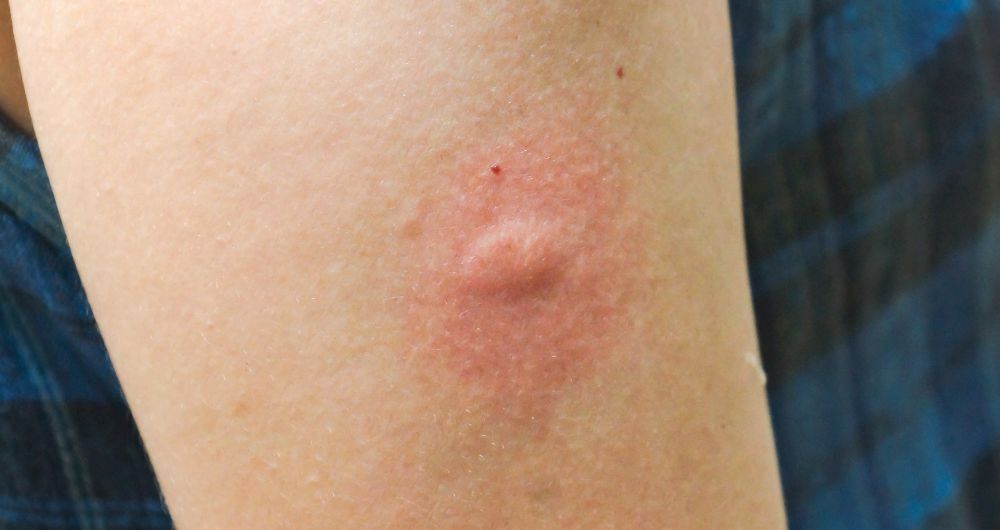
Dealing with insect bites can disrupt your daily activities, especially if you enjoy spending time outdoors. If left untreated, these bites can lead to itching, swelling, and even more serious health complications. Knowing how to prevent and manage them effectively is crucial, ensuring that your outdoor pursuits remain enjoyable and worry-free.
Here are essential tips from the best medical professionals at your local urgent care in Southington, CT.
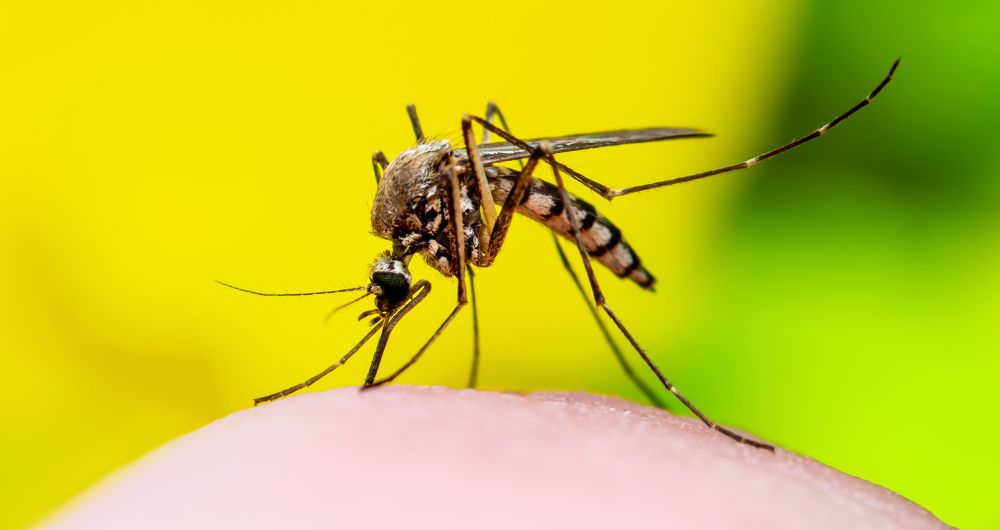
While bee stings can occasionally be fatal, they are just one of the many common insect bites that can cause discomfort and health issues. Mosquitoes, fleas, bedbugs, spiders, and ants also deliver painful bites or stings. Each insect species has its distinct bite characteristics and potential health risks. Below, we provide descriptions of various insect bites that might prompt a visit to urgent care in Southington, CT.
Mosquitoes thrive in areas near humans, forests, marshes, or tall grasses with water. Their bites typically result in raised, itchy, pink skin bumps. Although most mosquito bites are harmless, they can trigger severe allergic reactions that require urgent care in Southington, CT. Moreover, mosquito bites can transmit several diseases, including:
Fleas are commonly found in yards, wildlife, or shaded and humid areas where they complete their life cycle. Their bites can cause itchy welts on the ankles and legs, leading to persistent itching and discomfort. Additionally, flea bites can transmit diseases such as:
Bedbugs typically reside around beds but can also infest furniture, fabrics, and other areas. A bedbug bite leaves a small, red, and itchy mark. Sometimes, bedbug bites can cause life-threatening allergic reactions and require an immediate visit to the nearest urgent care in Southington, CT.
Bedbug infestations have been linked to:
Spiders exist in almost all terrestrial regions except extreme climates. A spider bite can cause minor irritation or severe symptoms requiring urgent care. Common symptoms include redness, swelling, and pain at the bite site. Certain spider species like black widows or brown recluses can pose life-threatening risks to humans if not brought to an urgent care in Southington, CT.
Ticks inhabit grassy, bushy, or wooded areas and can latch onto domesticated animals and humans. Tick bites often leave distinctive rash patterns resembling bull’s-eyes. Certain ticks can transmit serious diseases like:
Ants live in underground anthills or inside trees but can also infiltrate homes or buildings. Ant bites typically leave small, red, raised marks on the skin. Fire ants, in particular, can deliver painful stings that result in a burning sensation followed by the development of a small, red bump or welt.
Bees can be found in almost any terrestrial habitat where there are flowers to pollinate. When bees sting, they inject venom into the skin, resulting in a distinctive red skin bump with white around it. Bee stings can cause immediate pain and swelling, usually subsiding within a few hours.
Bee stings can also trigger:
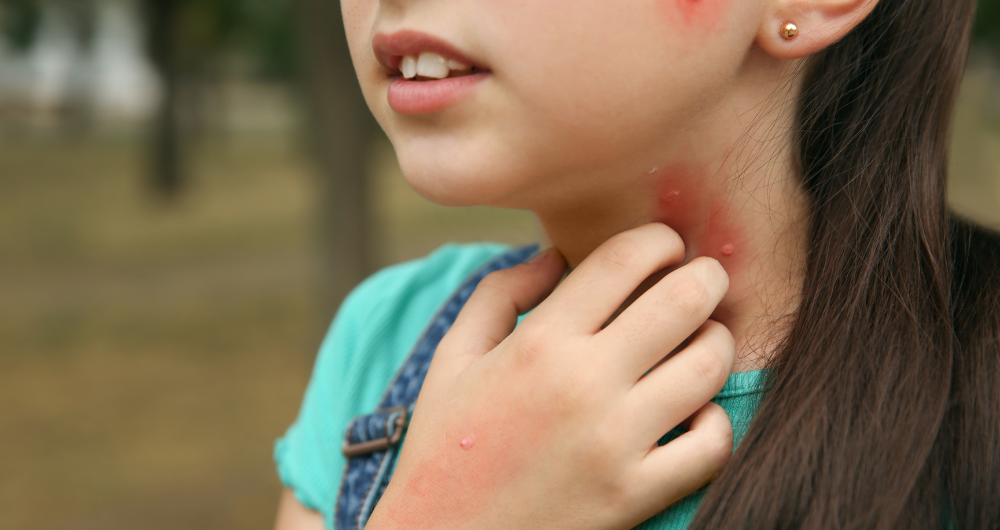
Insect bites can trigger various allergic reactions sending you to an urgent care in Southington, CT. Each reaction varies depending on an individual’s immune response to the insect’s venom or saliva. Here are the common reactions from insect bites:
In some cases, especially with mosquito bites, a delayed hypersensitivity reaction can occur hours or days after the initial bite, presenting as a persistent, itchy rash (contact dermatitis) at the bite site.
Certain populations, such as children, the elderly, and individuals with allergies or sensitivities to insect venom may be at higher risk of complications from insect bites. They can be sent to urgent care in Southington, CT.
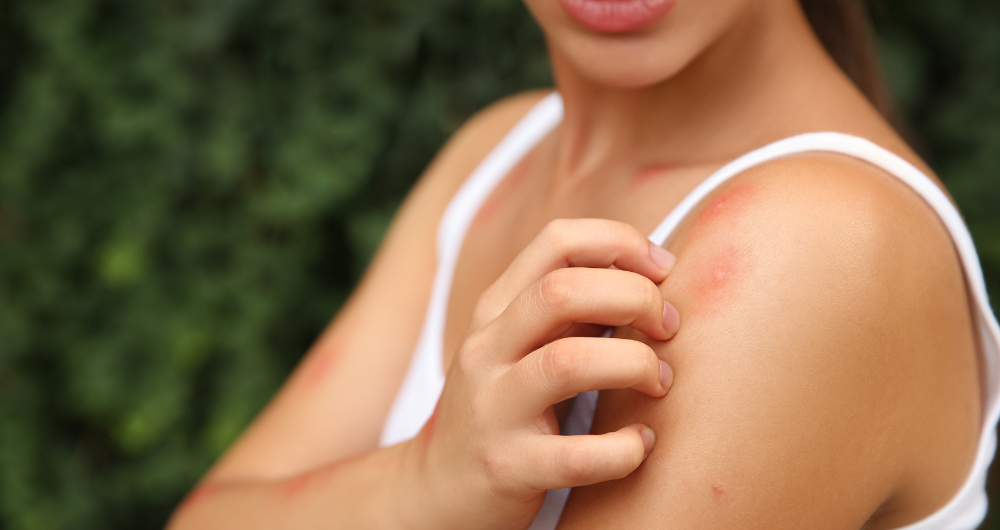
At least 90 to 100 people in the United States die due to allergic reactions from insect bites. In the event of getting bit by an insect, applying first aid can help alleviate symptoms and avoid complications before going to an urgent care in Southington, CT for treatment.
Here are some steps you can take:
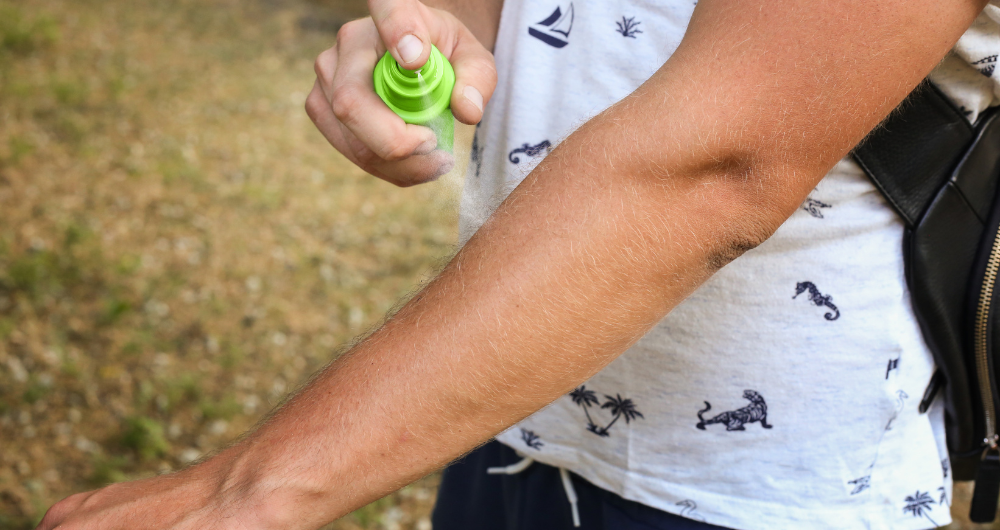
Before paying a visit to your urgent care in Southington, CT, consider some easy home remedies for minor insect bites using items commonly found in your kitchen or medicine cabinet:
Baking soda is known for its soothing properties and can help alleviate itching and irritation caused by insect bites. Mix a small amount of baking soda with water to create a paste, then apply it directly to the affected area. Leave the paste on briefly before rinsing it with lukewarm water. Repeat as needed for relief.
Oatmeal is a natural anti-inflammatory agent that can help reduce itching and soothe irritated skin. Add colloidal oatmeal (finely ground oatmeal) to a warm bath and soak for 15-20 minutes. Alternatively, create a paste by mixing oatmeal with water and apply it directly to the affected area for localized relief.
Aloe vera is well-known for its soothing and healing properties, making it an excellent remedy for insect bites. Apply pure aloe vera gel to the affected area to reduce inflammation and promote skin healing. Keep the gel refrigerated for an extra cooling effect.
Tea tree oil has natural anti-inflammatory and antimicrobial properties, effectively treating insect bites. Dilute tea tree oil with a carrier oil such as coconut or olive oil, then apply it to the bite using a cotton swab. Be sure to perform a patch test first, as some individuals may be sensitive to tea tree oil.
Calamine lotion contains zinc and iron, which help soothe itching and dry out insect bites. Apply a thin layer of calamine lotion to the affected area and allow it to dry completely. Reapply as needed for ongoing relief.
Apple cider vinegar has natural antiseptic properties that can help relieve itching and prevent infection from insect bites. Dilute apple cider vinegar with water and apply it to the bite using a cotton ball or soft cloth. Allow it to air dry before rinsing it off with lukewarm water.
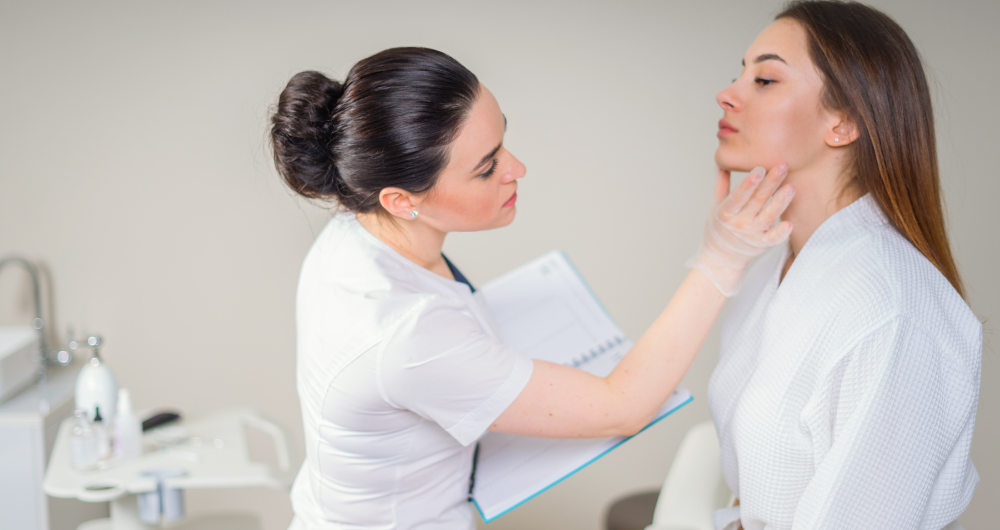
Understanding when to seek urgent care for insect bites is essential for your health and well-being. Insect bites can range from minor irritations to serious reactions requiring urgent care in Southington, CT. Here are critical indicators to consider:
Severe Allergic Reactions: If you experience symptoms such as difficulty breathing, swelling of the face or throat, dizziness, or a rapid heartbeat after an insect bite, seek urgent care immediately. These could be signs of a severe allergic reaction (anaphylaxis), which requires you to visit the nearest urgent care in Southington, CT.
Significant Swelling or Redness: While mild swelling and redness are common after insect bites, unusually large or expanding areas of swelling, redness, or warmth around the bite may indicate an infection or a more serious allergic reaction.
Persistent Pain or Itching: If you are experiencing persistent and intense pain, itching, or burning sensations at the bite site that does not respond to over-the-counter treatments, it may be necessary to visit urgent care in Southington, CT for further evaluation and management.
Development of Systemic Symptoms: Symptoms such as fever, chills, nausea, vomiting, or headache following an insect bite can be concerning and may indicate a systemic reaction or infection that requires medical attention.
Presence of Ticks: In areas where ticks are prevalent, a bite from a tick should be evaluated promptly. If you cannot remove a tick altogether or suspect the tick may have been attached for an extended period, evaluation at an urgent care in Southington, CT is recommended to assess for potential Lyme disease or other tick-borne illnesses.
Worsening Condition: Trust your instincts. If the condition of the insect bite seems to be worsening despite home care efforts, or if you have concerns about the bite, seeking urgent care can provide peace of mind and appropriate medical assessment.
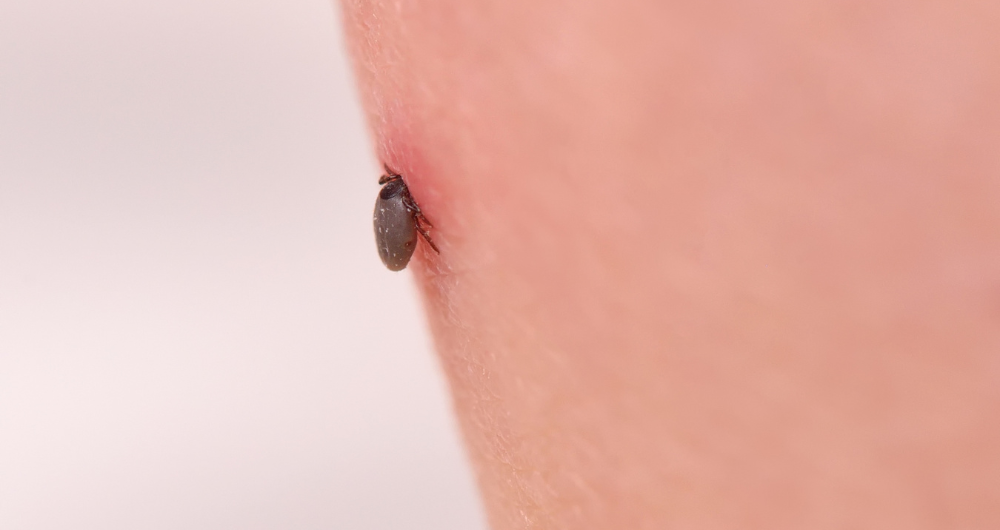
While mosquitoes are most active during dawn and dusk, certain species, such as the Aedes mosquito, are known to bite during the day, especially in shaded or humid areas. It’s crucial to use insect repellent and protective clothing throughout the day to minimize the risk of mosquito bites.
While bee stings can be painful and may trigger severe allergic reactions in some individuals, they are rarely fatal. Most people experience localized swelling, redness, and discomfort after a bee sting, which can be treated with first aid measures and over-the-counter medications. However, if stung, individuals with bee sting allergies should seek urgent care in Southington, CT.
Contrary to popular belief, spiders do not typically bite humans unless they feel threatened or cornered. Spider bites are often defensive and occur when a spider is inadvertently disturbed or provoked.
Covering a tick with petroleum jelly or nail polish may cause it to release its hold and detach from the skin, but it does not suffocate the tick. Instead, it may increase the risk of the tick regurgitating its stomach contents into the wound, potentially increasing the risk of infection or disease transmission. The safest way to remove a tick is using fine-tipped tweezers to grasp it firmly and pull it straight out without twisting.
While natural insect repellents derived from plant-based oils may offer some degree of protection against insects, they are not always as effective or long-lasting as chemical-based repellents containing DEET, picaridin, or oil of lemon eucalyptus. Some natural repellents may also cause skin irritation or allergic reactions in sensitive individuals. It’s essential to weigh the benefits and risks of each repellent and choose one that provides adequate protection for your needs.
Don’t let bites ruin your day—take action now and visit us at DOCS Urgent Care – Southington. Your well-being is our priority. Schedule your visit or walk-in today at your nearest urgent care in Southington, CT!



During this surge in COVID-19 cases, our primary focus is meeting the high demand for tests, and we are seeing higher than usual wait times. This means we are unable to answer most phone calls. Please know that our teams are working very hard during this time to care for as many patients as safely as possible. Please click the button below for answers to common questions. We appreciate your understanding.